The contribution of the RIE funding programme
The contribution of the funding programme goes beyond financial support. The funding programme helps to anchor RIEs more firmly in German development cooperation:
An overview of the phases of the funding programme can be found here.
Identify: Finding suitable projects
The starting point for each RIE is a development cooperation project and the intervention in which the RIE is implemented.
Information on how development cooperation projects could participate in the funding programme can be found here: Application for development cooperation projects.
However, not all development cooperation projects are suitable for RIE (for more information, see Faust, 2020).
As a first step, the RIE funding program established a process of systematically listing projects that are suitable for RIE.
For this purpose, a checklist was provided that allowed project managers to assess whether their project was eligible for RIE (checklist).
Networking: Linking science and practitioners
Conducting an RIE requires knowledge of the required methods. One goal of the funding programme is to link methodological knowledge on RIE from academia with applied knowledge from German development cooperation organisations. To promote the exchange of knowledge and the establishment of cooperations, a match-making between science and practice was carried out.
Funding: Provide financial resources
RIEs are a financial investment in future knowledge. Part of the benefit of RIE – learning about impact – occurs after the evaluation and often after the development cooperation project has been completed. To reduce the financial hurdle for the development cooperation project, the RIE funding programme provides financial resources of up to 365,000 euros for each of the nine funded RIEs.
Advising: Consulting and capacity building
To anchor RIEs sustainably in German development cooperation, evaluation capacities in German development organisations are to be further strengthened. The RIE funding programme is also aimed at increasing the awareness of RIE in the German development cooperation community and, especially, making the benefits of RIE more visible. This should create incentives to strengthen evaluation capacities and to embed RIE in development cooperation projects.
In addition, DEval offered consultations and trainings to build the evaluation capacities of the organizations in German DC.
Communication and public relations
DEval will publish and disseminate the RIE results. The evidence generated can feed into the development cooperation community (development organisations, BMZ and academia) and promote the use of RIEs. Ideally, the lessons learnt will inform the planning and implementation of future projects and provide guidance for the strategic direction of projects and organisations.
Evaluate learning experiences
The evaluation of the funding programme should help to systematise learning experiences, which can relate to administrative processes, the structure of the funding programme and support services, and collaboration between academia and practitioners. The question of how RIEs function in German development cooperation projects – from planning, through implementation, to utilisation – will also be addressed.
The overarching question to be answered – as far as this can be evaluated by the end of the programme – is to what extent the funding gap closed by the RIE funding programme has contributed to anchoring RIE more sustainably in German development cooperation. It is also planned to highlight the remaining challenges and barriers despite the temporarily closed funding gap and to show how they can be reduced.
The initial learning experiences will be published here once they have been analysed and systematised.


